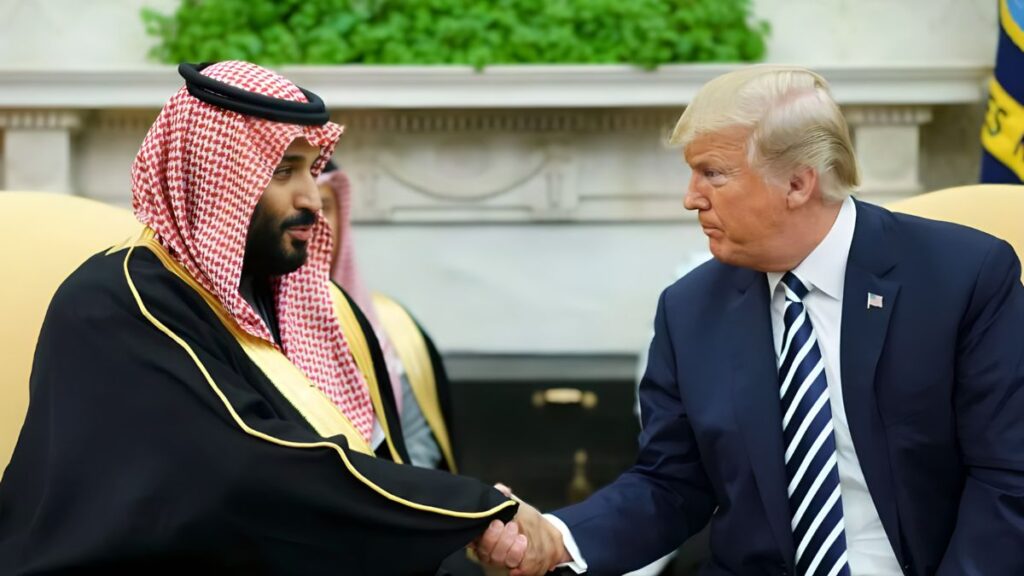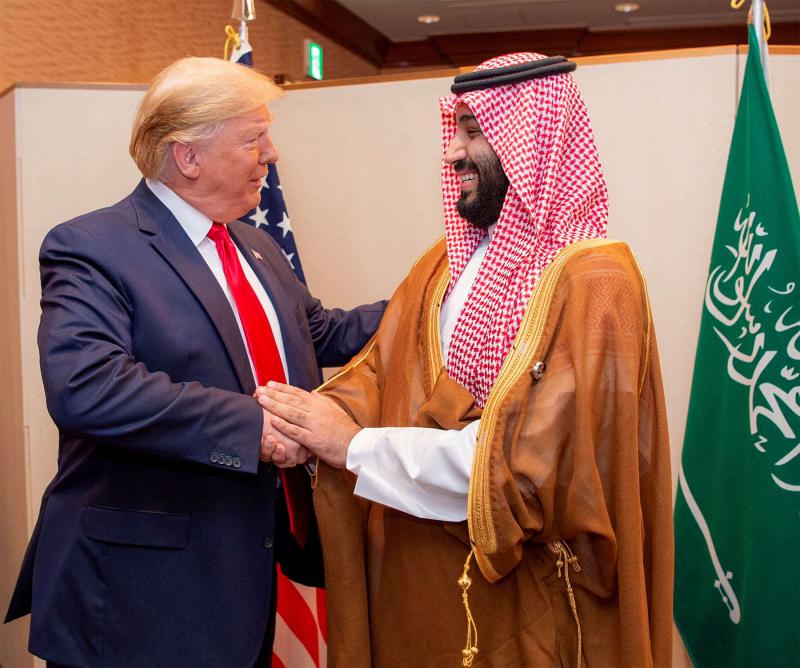President Donald Trump is set to make a major diplomatic journey to the Gulf region, confirming plans to visit Saudi Arabia, Qatar, and the United Arab Emirates (UAE)Trump’s Gulf in the coming weeks. This visit, expected to occur around mid-May, will be Trump’s first international trip since returning to office, marking an important moment for U.S. foreign relations and economic policy. The trip highlights the ongoing importance of the Gulf nations in global geopolitics, as well as their economic and strategic significance to the United States.
A Strategic Start to a Second Term
Trump’s decision to start his second presidential term with a visit to the Gulf is no accident. During his first term, his initial overseas trip was also to Saudi Arabia, where he met with key leaders and laid the groundwork for strengthening ties between the U.S. and the Gulf states. This time, Trump aims to build on the successes of his earlier engagements, positioning the U.S. as a central player in the region’s future economic growth.
In a recent statement from the White House, Trump emphasized the strategic nature of this visit, asserting that it would lead to “a tremendous amount of jobs” for American workers and create long-term investments in the U.S. economy. He also mentioned that the Gulf nations are increasingly interested in bolstering their ties with the U.S. due to their shared interests in security, energy, and trade. This trip is seen as an opportunity to foster even deeper economic relationships, benefiting both the U.S. and the Gulf states.
Economic Deals on the Horizon
One of the most significant aspects of Trump’s upcoming Gulf tour is the expected economic deals. The centerpiece of the trip is anticipated to be an agreement with Saudi Arabia, which could include investments exceeding $1 trillion in various U.S. industries. This might include substantial military equipment purchases, as well as deals in energy, infrastructure, and technology sectors. Both the U.S. and Saudi Arabia have long maintained strong military and economic ties, and this trip is set to deepen those connections further.

Qatar and the UAE are also expected to make significant investments in U.S. companies, as both nations have increasingly aligned themselves with American interests over the past several years. For the U.S., these investments could mean thousands of new jobs and an influx of capital into various sectors. Analysts predict that these deals will not only strengthen bilateral ties but also have far-reaching effects on the global economy, particularly in the Middle East.
Moreover, Trump’s team is expected to use this trip to finalize long-standing military contracts with Gulf allies, securing U.S. defense companies a continued role in the region. The sale of advanced fighter jets, defense systems, and other military technologies will likely top the list of agreements made during this trip. For the Gulf countries, these deals are part of their broader strategy to modernize their military forces and secure defense partnerships with the U.S. in an increasingly volatile region.
A Broader Middle East Engagement
While the main focus of Trump’s visit is Saudi Arabia, Qatar, and the UAE, there are discussions about additional stops that could be added to the itinerary. While specifics have yet to be confirmed, the possibility of expanding the trip to include other regional powers such as Bahrain, Kuwait, or even Oman remains on the table. However, it’s worth noting that Israel does not appear to be a part of this tour, despite the significant diplomatic progress made between Israel and some Gulf states during the Trump administration. The exclusion of Israel might indicate a shift in focus, as the Gulf countries seek to address other regional challenges, such as energy security and countering Iranian influence.
In the context of broader Middle Eastern geopolitics, Trump’s Gulf tour also signals a desire to reinforce American leadership in the region. The Biden administration’s foreign policy shift, particularly regarding the U.S. military presence in the Middle East, has raised questions among Gulf allies about the reliability of the U.S. as a partner. Trump’s visit is seen as a reaffirmation of the U.S. commitment to the region and a message that American economic and security interests remain firmly entrenched in the Gulf.
Implications for U.S.-Gulf Relations
The U.S.-Gulf partnership is a vital one, grounded in economic cooperation, energy trade, and security collaboration. This upcoming trip represents a continuation of that alliance, but it also highlights how U.S. foreign policy in the region is shifting in response to both global economic pressures and regional challenges.
For the Gulf states, strengthening ties with the U.S. is a key part of their diversification efforts. As the region moves away from its traditional reliance on oil revenues, leaders in Saudi Arabia, Qatar, and the UAE are looking to expand their economies into other sectors, including technology, tourism, and infrastructure. The U.S. offers a wealth of expertise and investment opportunities in these areas, and the deals expected to be announced during Trump’s visit will likely have long-lasting effects on the region’s economic development.
Additionally, the Gulf countries have increasingly become important players in global trade and investment, and they view the U.S. as a crucial partner in ensuring their economic stability. As such, these nations are eager to align themselves with American interests and continue fostering mutually beneficial partnerships.
The Domestic Impact: Jobs, Investments, and Economic Growth
At home, Trump’s Gulf tour is expected to have a significant impact on U.S. workers and businesses. The investments from Gulf nations are expected to create thousands of jobs, particularly in industries such as defense, construction, energy, and technology. U.S. companies stand to benefit from the influx of capital and the opening of new markets, particularly in emerging sectors like renewable energy and high-tech industries.
Trump’s administration has long championed policies aimed at stimulating U.S. job growth and securing major trade deals that benefit American workers. This visit, which focuses on job creation and economic partnerships, reflects that ongoing commitment. As a result, Trump’s trip is likely to be seen as a win for American businesses and a demonstration of his continued focus on strengthening the U.S. economy through international diplomacy.
Conclusion
President Trump’s upcoming Gulf tour is poised to be a landmark event in U.S.-Gulf relations. With expected investments exceeding $1 trillion and key military and economic agreements on the table, the trip offers substantial opportunities for both the U.S. and the Gulf nations. As the global community watches closely, it will be clear that this tour is not only about strengthening partnerships but also about positioning the U.S. as a leading force in shaping the future of the Middle East’s economy and security landscape.
Trump’s visit is a reminder of the critical role that the Gulf region plays in global geopolitics, and how U.S. engagement in the area remains a cornerstone of its foreign policy strategy. Whether it’s securing military contracts or forging new economic partnerships, this trip promises to have far-reaching effects on the global stage.
Qatar Airways Faces Legal Action Over Alleged In-Flight Theft by Crew Member



